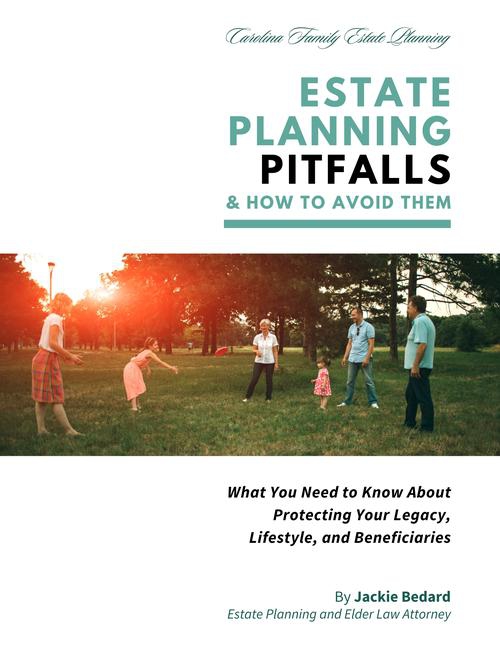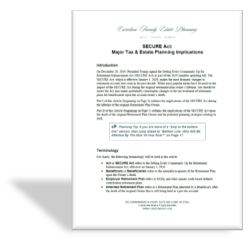
The holidays are a time for family, warmth, and making memories. They're also a rare time when everyone is gathered in one place, which can make them the perfect opportunity to discuss a topic many families avoid: estate planning. Bringing up a will or a trust can feel awkward or even morbid, but an open conversation is one of the greatest gifts you can give your family. It is a gift of clarity, certainty, and peace.
This blog post provides practical, compassionate ways to start a meaningful conversation about your estate plan this holiday season.
The Holiday Opportunity: Why Now Is the Time
For many families, the topic of end-of-life wishes or inheritance feels taboo. The thought of bringing it up can be stressful, leading many people to put it off indefinitely. This is a mistake. Waiting only increases the risk of family conflict and confusion down the road.
Overcoming the Fear of an "Awkward" Conversation
The key to a successful conversation is to frame it as an act of love, not a morbid chore. Estate planning is about making life easier for your family in the future. It is about protecting your children and spouse. When approached with a focus on care and responsibility, the conversation becomes far less intimidating.
Why the Holidays Offer the Perfect Setting
The holidays offer a natural, low-pressure environment for this kind of discussion.
- Everyone is present. You don't have to schedule a separate meeting or conference call.
- It is a time for reflection. The season naturally encourages thinking about family, legacy, and the future.
- It is a gift of love. You can present the conversation as a gift of clarity and peace of mind for your loved ones.
3 Simple Ways to Start the Conversation
You do not have to announce a formal meeting. Instead, find a natural way to introduce the topic.
1. The "I Just Did This" Approach
This is a simple, direct way to begin. You can say: "I just met with my lawyer to update my will and powers of attorney. I feel so relieved. I wanted to tell you about it because it's important that you know where the documents are and who to call if you ever need to." This approach makes the conversation about your actions, not about your children's or parents' mortality.
2. The "What If" Question
This approach is less direct and allows for a more open discussion. You could ask: "If something were to happen to me, does everyone know where our legal documents are kept?" Or, for adult children speaking to parents: "We just finished our own estate plan. It made me realize how important it is. Have you thought about getting yours in order?"
3. The "Educational" Approach
You can use a third-party source to open the conversation. For example, "I just read an article about how families fight over inheritance, and it made me realize how important it is to have a clear plan. I want to make sure that doesn't happen to our family." This can also be a good way to introduce the idea of attending a webinar or downloading our free estate planning pitfalls guide.
What to Talk About: Key Topics to Cover
You do not need to share every financial detail. The most important goal is to discuss who is in charge of what.
Financial Power of Attorney
Explain who you have chosen to handle your finances if you become incapacitated. This person can pay bills and manage assets without needing a court's permission.
Health Care Power of Attorney
Tell your family who you have named to make medical decisions for you if you cannot make them for yourself. It is important that this person understands your wishes for medical care.
The Will or Trust
You can share the location of these documents and let your family know who you have chosen as the executor or trustee. If you feel comfortable, you can share a general overview of your plan and explain the "why" behind your decisions.
The Biggest Mistakes to Avoid
Making It All About Money
This conversation is not just about who gets what. It is about protecting your family. Focus on the core purpose of your plan: ensuring your family is cared for and that your wishes are honored.
Waiting Until the Last Minute
A holiday conversation is not a substitute for a comprehensive plan. It is a way to get your family on the same page. Do not wait until you are sick or in a crisis to start.
The Lack of Specifics
Avoid vague statements like, "I've taken care of everything." Your loved ones need to know where your legal documents are and who to call if a crisis occurs. Give them the information and resources they need.
To learn more about getting started with these important conversations, download our free guide, "Here's the Plan: How to Tell Loved Ones What You’d Like to Happen."
Your Next Steps In A Path to Peace of Mind
Taking the first step to talk about your wishes with your family this holiday season is a great start. The next step is to ensure your legal documents are up to date and legally valid in North Carolina.
- If you don't have a plan yet, now is the time to get the foundational documents in place to protect your family and assets.
- If you already have a plan, we can review it to ensure it reflects your current wishes. We can also help you update your plan to ensure it is valid and aligned with North Carolina law, which is crucial if your documents were created in another state.
To discuss your specific situation, click here to schedule a case assessment or call (919) 443-3035 to speak with our team today.







